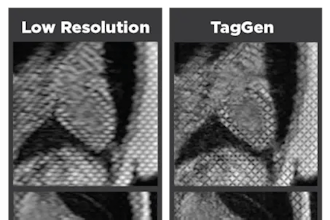
Heart failure is the leading cause of hospitalization in those more than 65 years old. Research predicts that the condition will increase in global prevalence by almost 50% by 2030.
Heart failure currently affects more 64 million people worldwide. In order to reduce the burden of disease on both health systems and patients, Amsterdam University Medical Centers is launching, thanks to a Horizon Europe grant of almost 6 million euros ($6,532,680.00), a consortium to look for an AI-powered solution.
Consortium leader and Professor of Precision Medicine at Amsterdam UMC, Folkert Asselbergs explains that the consortium "has the ambitious objective of developing a model that can predict the likely outcome for each, individual patient based on available data. Which will allow for timely and highly personalized care.”
In order to achieve this "ambitious” goal, the consortium, which consists of partners from across the world, will develop an algorithm, that will facilitate the personalized risk assessment, by combing data from cardiac imaging, cardiac biomarkers, ECG data as well as information from patient records. In order to build this AI-model, the consortium will combine the data of around 900,000 patients from Europe, South America and Africa.
"Our patient data set provides us a great opportunity to really understand all of the factors that determine the progress of the condition and, thus, assess an individual patient’s risk” says Asselbergs. “Moreover, by involving patients and clinical experts through co-creation workshops from the start we ensure that all relevant patient and clinical requirements are taken into account when developing the AI- model to maximize inclusion, accountability, transparency and fairness, well beyond the quality of technical performance required by the current regulatory frameworks”.
Once the AI model has been built, it will also be translated into an easy-to-use tool for clinicians in their appointment rooms for shared decision making. With the goal of widespread role out once the project has been completed and appropriate certification has been obtained.
Responsible AI
A key aspect of this project is also ensuring that AI models are implemented in a responsible way. For Asselbergs, this is "crucial" in ensuring that AI is adopted appropriately. "In order to for our model to be usable, it requires continuous engagement from patients, clinicians and data experts. This will only open happen if there is trust in the way the data is used,” adds Asselbergs.
To promote this trust, the consortium will also develop mechanisms that will monitor how AI performs after being introduced in a real-world setting. The five clinical sites involved in this study are in the Netherlands, Spain, Czechia, Peru and Tanzania and the diversity of location will allow thorough testing of the model as well as facilitating the collection of diverse patient data.
This will also include the study of social and ethical issues that may arise from the implementation of AI to assess patient risk. "We want to show with this project just how powerful AI can be as a tool in clinical practice, but we also want to do it a way that is responsible and considers all of the factors that will affect its use,” concludes Asselbergs.






















